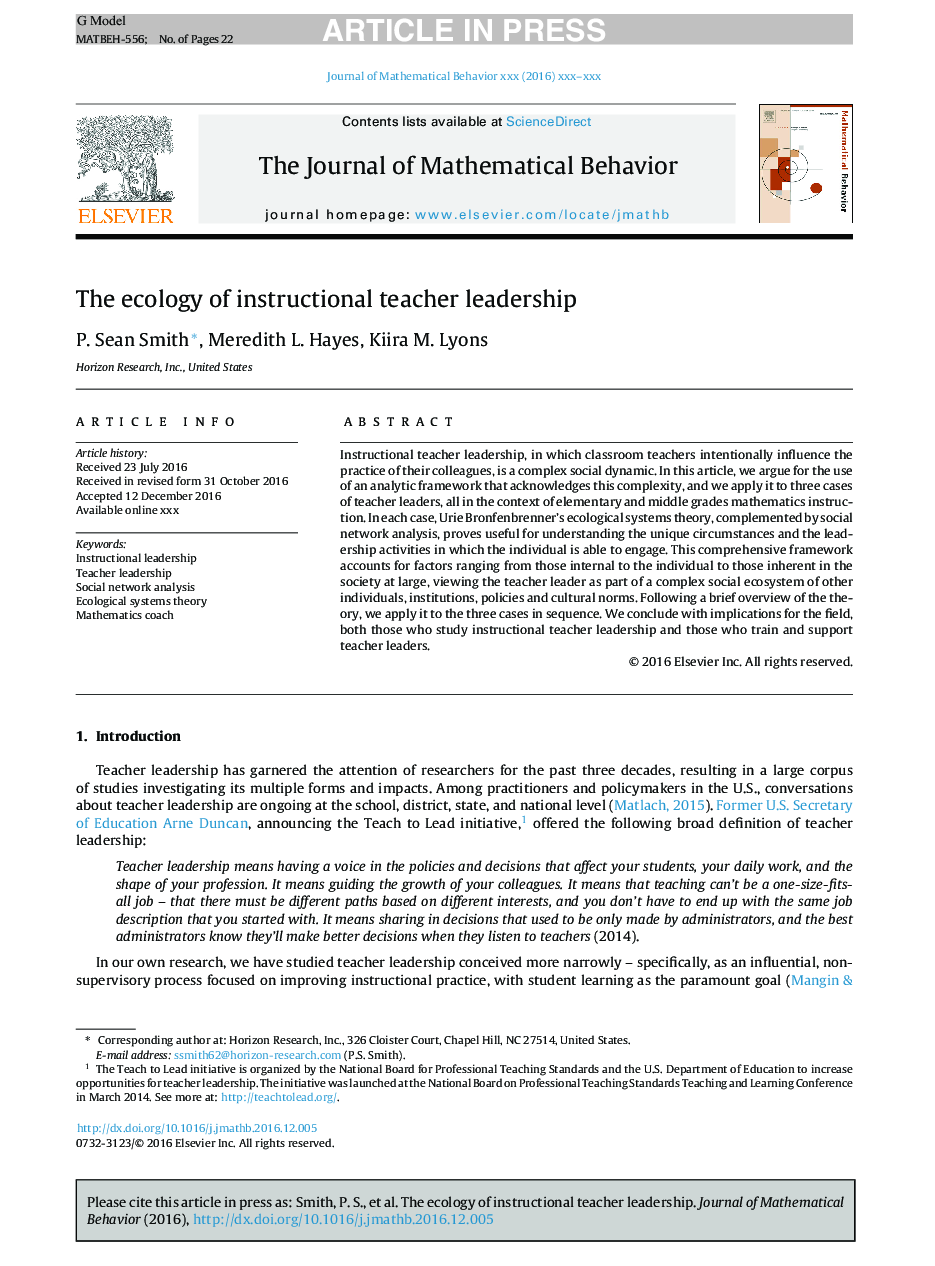| Article ID | Journal | Published Year | Pages | File Type |
|---|---|---|---|---|
| 4939311 | The Journal of Mathematical Behavior | 2017 | 22 Pages |
Abstract
Instructional teacher leadership, in which classroom teachers intentionally influence the practice of their colleagues, is a complex social dynamic. In this article, we argue for the use of an analytic framework that acknowledges this complexity, and we apply it to three cases of teacher leaders, all in the context of elementary and middle grades mathematics instruction. In each case, Urie Bronfenbrenner's ecological systems theory, complemented by social network analysis, proves useful for understanding the unique circumstances and the leadership activities in which the individual is able to engage. This comprehensive framework accounts for factors ranging from those internal to the individual to those inherent in the society at large, viewing the teacher leader as part of a complex social ecosystem of other individuals, institutions, policies and cultural norms. Following a brief overview of the theory, we apply it to the three cases in sequence. We conclude with implications for the field, both those who study instructional teacher leadership and those who train and support teacher leaders.
Related Topics
Physical Sciences and Engineering
Mathematics
Applied Mathematics
Authors
P. Sean Smith, Meredith L. Hayes, Kiira M. Lyons,
